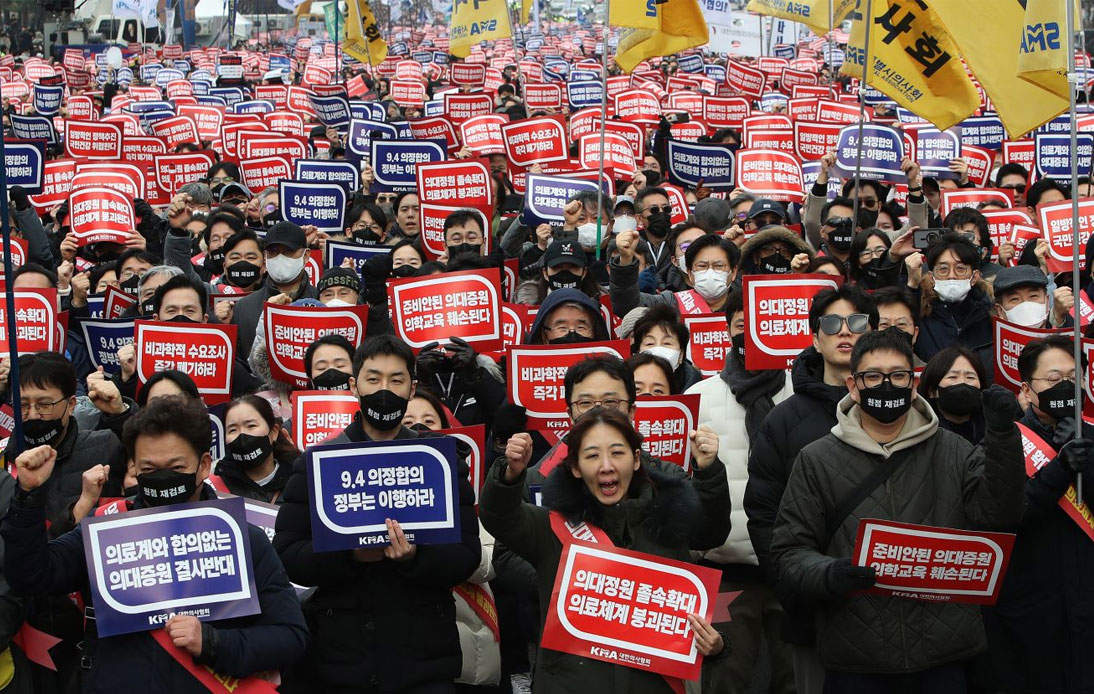
On Sunday, thousands of doctors in South Korea marched through Seoul in protest against the government’s proposal to raise the number of medical school admissions and their concerns over perceived widespread neglect of the nation’s healthcare system.
The protesting doctors argue that the government should tackle a broader array of issues within the healthcare system beyond merely increasing the annual number of medical graduates.
They are worried about the distribution of staff across various specialties, compensation for critical medical services, and the establishment of adequate infrastructure to educate a larger influx of medical students.
In February, the government announced its intention to boost medical school admissions by 2,000 students starting in the 2025 academic year, raising the annual admission to 5,000 students.
Trainee doctors are expressing frustration with challenging work conditions, which encompass inadequate pay and extensive working hours.
On February 21, approximately 8,000 trainee doctors initiated a strike by resigning, with an additional 1,000 resignations following.
This action is part of an effort to address the healthcare needs of South Korea’s rapidly aging population and to improve healthcare accessibility in rural areas, as stated by the government.
CNN reported in July that the number of childcare facilities in South Korea has decreased by nearly 25% in a few years, underscoring the failure of efforts to encourage higher birth rates.
Conversely, the number of facilities for the elderly surged from 76,000 in 2017 to 89,643 in 2022, highlighting the rapid aging of the population, as per the health and welfare ministry.
South Korea faces the additional challenge of having the world’s lowest birth rate, which has been declining since 2015.
President Yoon Suk Yeol, on Tuesday, declared the government’s determination to proceed with the medical reforms, emphasizing that safeguarding vulnerable groups is a key governmental policy and not open to negotiation.
A Gallup poll recently showed that 76% of people support the expansion of medical school admissions.
On Thursday, the government issued an order for the striking doctors to return to work, cautioning that their licenses might be suspended if they failed to do so.
Despite this, a spokesperson for the doctors stated their support for the strike would persist, and they would continue to advocate for their demands.
To maintain healthcare services during the strike, the government has called upon military medical personnel, and nurses have been legally authorized to perform certain tasks typically reserved for doctors, as per the health ministry.




















